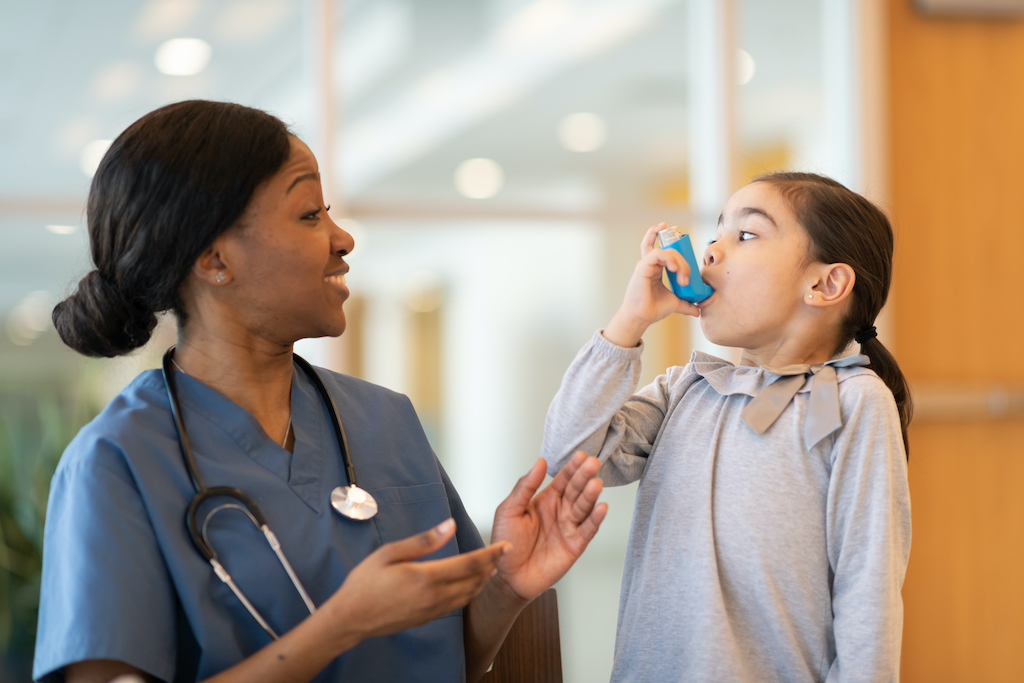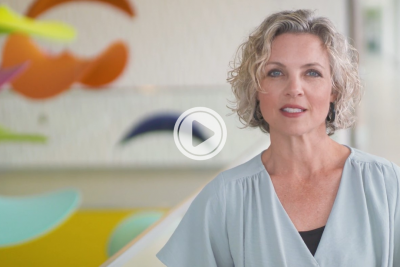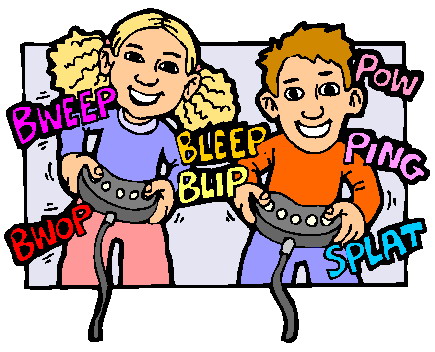Many things have changed in the past six months due to COVID-19, but there are some things that continue in our lives despite the pandemic. Parents, students and school staff need to remember that children and teens with asthma continue to have asthma. In a usual fall season, as students get ready to go back to school, parents take advantage of the start of the school year as a time for an annual asthma “tune up” before fall allergies and viruses hit. At the same time, school nurses and teachers begin to get ready for the individual health needs of their students. This year it might be more important than ever to take the right steps to optimize asthma care whether your students are learning at school or at home. Keeping asthma and allergies in check should help students stay well with any virus that might come their way – even coronavirus.
Steps to get “asthma ready” this fall:
Schedule Your Annual Visit With Your Specialist to Plan for Asthma Care at School
If your child sees a specialist for asthma or allergies, schedule your annual visit in-person or virtually to discuss your child’s asthma control. If the fall season is a problematic allergy time for your child, now is the time to optimize care. Fall allergies are right around the corner. Get refills for medicines that will be needed for home and school. Make sure that you have the correct chambers and understand the correct way to take all medicines.
Schedule A Visit With Your Primary Care Provider
Schedule a visit with your primary care provider to discuss your child’s overall health and development. Whether your child is learning virtually or at school, don’t skip checking in with your primary care provider this fall. Many appointments are taking place virtually due to the pandemic. Be sure to discuss asthma control, immunizations, medication refills and learning or mental health issues. Make a list to get all your questions addressed about asthma care at school.
Update Your Asthma Care Plan for School
Be sure to have an updated Asthma Action Plan. You never know when your child will need asthma care at school. You may want to put a picture of the plan in your phone. The Asthma Action Plan should be shared with all health providers, school nurse and teachers, before/after school providers, families and coaches. Having a picture will make it easy for you to share it. Even your child can have a picture on their personal device. Send a letter or email and follow-up by talking with your school nurse and teachers to assure everyone understands the asthma and allergy plan for your child.
Discuss Your Child’s Medications With The School
Discuss with your school nurse and teacher how medicine will be administered at school and if any changes have been made due to COVID-19 precautions. The Center for Disease Control (CDC) has made recommendations for students in grades K – 12 and daycare. The recommendations address infection control and the safe administration of asthma medicines. https://www.cdc.gov/coronavirus/2019-ncov/community/schools-childcare/schools-faq.html Ask your school for a copy of the procedures and policies that they are implementing this year. To prevent aerosolized viral particles, your school may prefer that your child has an inhaler and chamber instead of albuterol solution given by nebulizer. Parents are the best advocates for their children. If needed, consider including your child’s health care provider in the conversation with the school.
Ask if your school has stock medicines in case of emergency. Many schools have stock albuterol and epinephrine available as allowed by state legislation.
Optimize The Air Quality In Your Home
Children with asthma and allergy benefit from good air quality. Decide on a plan for optimizing the air quality of your home and check to make sure your school also has a plan in place. Now, with the threat of transmitting COVID-19 indoors, optimal ventilation and filtration is especially important. Fresh air is helpful to prevent
transmission of COVID-19 so periodically opening windows to allow ventilation and giving students time outdoors should be part of the plan. If your child has outdoor allergies, discuss ways to optimize allergy care to allow their participation in outdoor activities. This is not the season to slack off on your child’s allergy regimen. The time outdoors will improve their physical and mental health. It might be a good idea to shower and wash hair to cleanse off allergy before bedtime. If the outdoor activity during the day is triggering your child’s allergies be sure to talk early with your health care provider.
Take Precautions Against Viruses
Prevent virus. Make sure your child gets the flu shot this fall. Children should wear masks in public places and at school. Discuss any concerns you may have about your child wearing a mask with your health care provider. It is safe for most children to wear a mask. Have your child wash their hands frequently and thoroughly with soap and water for 20 seconds (It sometimes takes humming “Happy Birthday” twice!). Hand sanitizer will work if hands are not dirty. Keeping all children healthy and preventing virus is important but it is especially important for children with asthma. Virus complicates asthma. Watch for symptoms. Always follow the Asthma Action Plan and start rescue medicine with early signs.
Use Online Resources To Gather More Information
Utilize online resources that are easily available. The St. Louis Children’s Hospital Healthy Kids Express Asthma Tool-Kit https://www.stlouischildrens.org/health-resources/advocacy-outreach/healthy-kids-express/healthy-kids-express-asthma-program/hke-asthma-tool-kit and the American Lung Association Back to School with Asthma Toolkit for Schools https://www.lung.org/lung-health-diseases/lung-disease-lookup/asthma/living-with-asthma/creating-asthma-friendly-environments/back-to-school-with-asthma-toolkit contain valuable information to support children with asthma and their families. Getting “asthma ready” and taking care to prevent virus could possibly make this the best Fall ever for your child. I just knew we could find something positive about 2020.






Comments